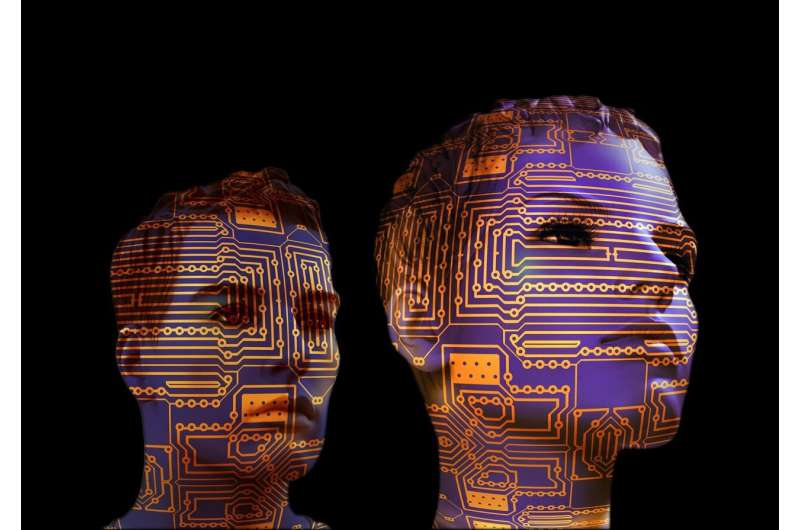Study finds workplace machine learning improves accuracy, but also increases human workload

New research from ESMT Berlin shows that utilizing machine-learning in the workplace always improves the accuracy of human decision-making, however, often it can also cause humans to exert more cognitive efforts when making decisions.
These findings come from research by Tamer Boyaci and Francis de Véricourt, both professors of management science at ESMT Berlin, alongside Caner Canyakmaz, previously a post-doctoral fellow at ESMT and now an assistant professor of operations management at Ozyegin University. The researchers wanted to investigate how machine-based predictions may affect the decision process and outcomes of a human decision-maker. Their paper has been published in Management Science.
Interestingly, the use of machines increases human’s workload most when the professional is cognitively constrained, for instance, experiencing time pressures or multitasking. However, situations where decision makers experience high workload is precisely when introducing AI to alleviate some of this load appears most tempting. The research suggests that using AI, in this instance, to make the process faster can backfire, and actually increase rather than decrease the human’s cognitive effort.
The researchers also found that, although machine input always improves the overall accuracy of human decisions, it can also increase the likelihood of certain types of errors, such as false positives. For the study, a machine learning model was used to identify the differences in accuracy, propensity, and the levels of cognitive effort exerted by humans, comparing solely human-made decisions to machine-aided decisions.
“The rapid adoption of AI technologies by many organizations has recently raised concerns that AI may eventually replace humans in certain tasks,” says Professor de Véricourt. “However, when used alongside human rationale, machines can significantly enhance the complementary strengths of humans,” he says.
The researchers say their findings clearly showcase the value of collaborations between humans and machines to the professional. But humans should also be aware that, though machines can provide incredibly accurate information, often there still needs to be a cognitive effort from humans to assess their own information and compare the machine’s prescription to their own conclusions before making a decision. The researchers say that the level of cognitive effort needed increases when humans are under pressure to deliver a decision.
“Machines can perform specific tasks with incredible accuracy, due to their incredible computing power, while in contrast, human decision-makers are flexible and adaptive but constrained by their limited cognitive capacity—their skills complement each other,” says Professor Boyaci. “However, humans must be wary of the circumstances of utilizing machines and understand when it is effective and when it is not.”
Using the example of a doctor and patient, the researchers’ findings suggest that the use of machines will improve overall diagnostic accuracy and decrease the number of misdiagnosed sick patients. However, if the disease incidence is low and time is constrained introducing a machine to help doctors make their diagnosis would lead to more misdiagnosed patients, and more human cognitive effort needed to diagnose—due to the additional cognitive effort needed to resolve due to the ambiguity implementing machines can cause.
The researchers state that their findings offer both hope and caution for those looking to implement machines in the work. On the positive side, the average accuracy improves, and when the machine input tends to confirm the rather expected all error rates decrease and the human is more “efficient” as she reduces her cognitive effort.
However, incorporating machine-based predictions in human decisions is not always beneficial, neither in terms of the reduction of errors nor the amount of cognitive effort. In fact, introducing a machine to improve a decision-making process can be counter-productive as it can increase certain error types and the time and cognitive effort it takes to reach a decision.
The findings underscore the critical impact machine-based predictions have on human judgment and decisions. These findings provide guidance on when and how machine input should be considered, and hence on the design of human-machine collaboration.
More information:
Tamer Boyacı et al, Human and Machine: The Impact of Machine Input on Decision Making Under Cognitive Limitations, Management Science (2023). DOI: 10.1287/mnsc.2023.4744
Provided by
European School of Management and Technology (ESMT)
Citation:
Study finds workplace machine learning improves accuracy, but also increases human workload (2023, May 11)
retrieved 11 May 2023
from https://techxplore.com/news/2023-05-workplace-machine-accuracy-human-workload.html
This document is subject to copyright. Apart from any fair dealing for the purpose of private study or research, no
part may be reproduced without the written permission. The content is provided for information purposes only.
For all the latest Technology News Click Here
For the latest news and updates, follow us on Google News.
